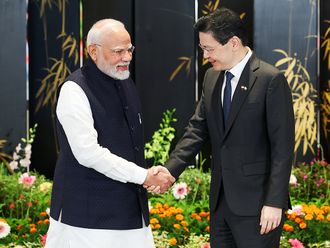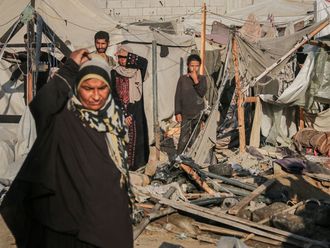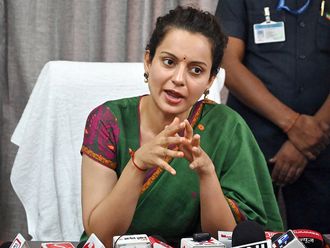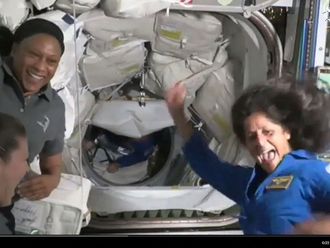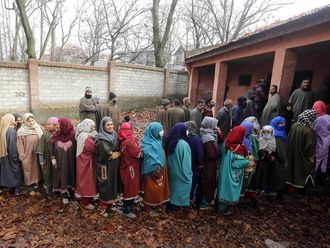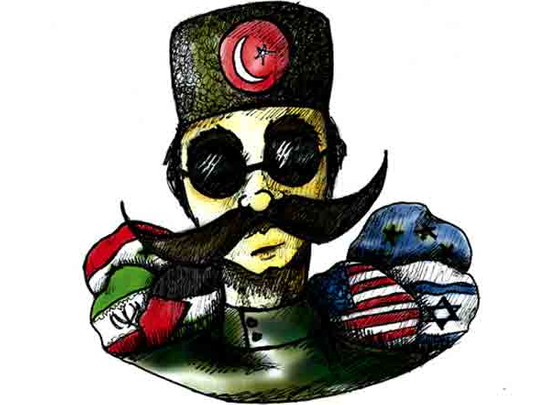
The Israeli assault on Gaza led directly to increased official Turkish support for the Palestinian cause, sharp criticism of Israel and a strong demand that the siege on the Strip be lifted. Turkey has managed to adopt the Arab position on Israeli colonies without distancing itself from the US or Israel, or abandoning its goal of European Union membership. This allows Turkey to play a broader political role.
The country has gained influence over most Middle Eastern issues, ranging from the siege on Gaza to Iran's nuclear programme. This change in Turkey's position from being solely an ally of the US and Israel, and a prominent member of Nato, to being a friend of Russia, Iran, Syria and Sudan, poses a central question: What would the impact be if Turkey severed relations with Israel, a major military and strategic partner?
Turkey is keen on playing a major role as a regional power. Nevertheless, one must acknowledge that Turkey is not alone. The other major regional players are Iran and Israel, not to forget the US, the EU and others. Understanding this fact, Turkey has chosen not to attempt to become a leader in any regional axis — unlike Iran. According to Al Zaytoonah Studies and Consultations Centre, Turkey, under the leadership of the Justice and Development Party, has tried to pursue a multi-dimensional foreign policy that involves opening its borders with its neighbours until economic integration is attained by 2023. This policy was engineered by Turkish Foreign Minister Ahmet Davutoglu.
All options are open
Al Zaytoonah's study adds that the multi-dimensional policy does not involve replacing one axis with another or leaning in any particular direction. Turkey still hopes to join the EU, as well as maintain its Nato membership and its relationship with Israel. Therefore, Turkey may use "its growing relations with the Arab and Islamic countries" to serve its strategic interests and to keep its options open.
Despite its sympathy for the Palestinians, Turkey had until recently maintained good relations with Israel, and continued political, economic and military cooperation. This enabled it to mediate between Syria and Israel. Turkey's almost neutral stance on the Palestinian problem has never been a result of sympathy for Israel. Turkey is still bound by about 60 security and military agreements, and it is considered Israel's largest Islamic commercial partner. Israeli exports to Turkey amounted to $1.073 billion (Dh3.9 billion) in 2009, while Israeli imports from Turkey amounted to $1.38 billion. This did not prevent Turkey from demanding the withdrawal of Israeli troops from the Occupied Territories, and a ‘just solution' to the Palestinian refugee problem. Turkey is also adamantly against the Judaisation of occupied East Jerusalem.
Keeping with its central policy of refraining from leading an axis, Turkey has drawn a line in the sand that it will not cross, particularly with regards to Gaza and Palestinian reconciliation, where the Egyptian role is respected by Ankara. Davutoglu is on record as saying, "The Turkish role will be supportive or complementary, but will not replace that of Egypt."
Turkish-Israeli relations are too strong to be severed easily. This has been confirmed by Dr Alon Liel, former director-general of Israel's Foreign Ministry and former Israeli ambassador to Turkey, who is considered an expert on Turkish policy. He states that the real deterioration in relations began when the previous Israeli government led by Ehud Olmert abandoned indirect peace negotiations with Syria. Should these negotiations resume in Istanbul, relations will improve. If Israel agrees to give Turkey a role in negotiations with Hamas, relations will flourish.
This viewpoint is confirmed by international and Israeli experts' belief that the Turkish leaders' political and media ‘attacks' against Israel during the past 18 months have not put an end to military cooperation between the two countries. All the evidence suggests that this alliance will not suffer any permanent damage. This is because the two countries have formal, deeply rooted agreements and cannot afford to sacrifice their strong military, economic and political cooperation. This conclusion was reaffirmed in a clear statement by Turkish Defence Minister Vecdi Gonul immediately after the attack on the Freedom Flotilla. The dark clouds over Turkey-Israel ties are sure to blow over.
Professor As'ad Abdul Rahman is the Chairman of the Palestinian Encyclopaedia.


